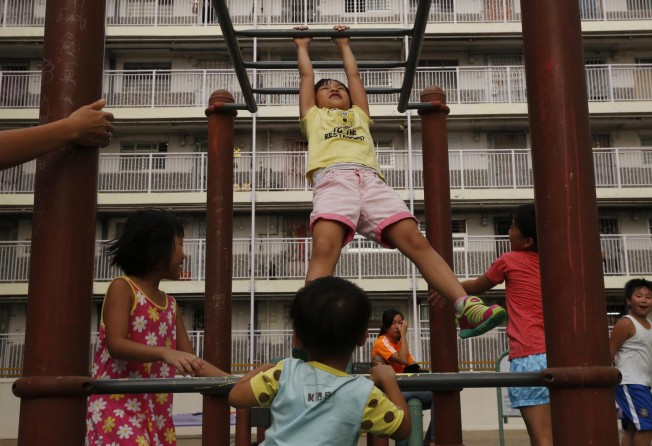Does family come last in Hong Kong?
Alice Wu says surveys that reflect the reality of women struggling to cope with both work and family demands should open our eyes to the city's lack of policy and social support

The gap between a man's and a woman's monthly pay has widened by HK$500 since 2011, reports the Census and Statistics Department. Lawmaker and chairwoman of the Democratic Party Emily Lau Wai-hing sees women earning less then men as a clear case of discrimination.
These are numbers that we need, but it is equally obvious that these numbers, without more detailed and specific measure mechanisms, are open to different interpretations. They are simply not detailed enough to be conclusive evidence.
Discrimination may well play a role, and Lau is right to call the pay gap "a massive concern". When at least half of the population earns less, it's a massive issue indeed. But whether that is simply due to their gender is something that requires a lot more study.
If enough people - and politicians - see this as "a massive concern", the first step to take in tackling this problem would naturally be to develop a more sophisticated measure and survey study that can yield actual meaning to the numbers.
In the absence of such a mechanism, it is irresponsible to make this solely a men-vs-women issue. Besides the backward cultural attitudes that Lau cited, what is glaringly obvious is the demand that modern life - and especially modern family life - puts on women and men and families.
That view is supported by another study done by the same department. This one, commissioned by the Labour and Welfare Bureau and the Women's Commission, yielded interesting results. According to that study, only 6 per cent of female homemakers are likely to take up a job because they are simply too busy with their housework and family to work.
While the survey does definitely show that there is a lot of room to raise the participation rate of women in the labour force, there must be more just enhancing childcare and after-school care services. We have been talking for years about the need for family-friendly employment policies, but it hasn't yielded a big enough impact. The long and inflexible working hours are, by far, the biggest deterrent to women re-entering the work force. Job sharing and working from home are still not available for those who have family demands.
With this city's rapidly ageing population, women have been put under the spotlight. The government is trying to tap the city's women to make up for the city's declining number of workers as Hong Kong's population profile ages. The pressure seems to be on them, as well, to raise the city's dismal fertility rate. As difficult as it sounds, the government seems to be telling them they need to pump out more babies and work more.
It goes without saying that we're one of the most stressed city-dwellers in the world. And, in fact, this city's women and families do not need to be told what to do. There are simply not enough resources to have enough children to form a basketball team, as a recently launched advertisement by the Family Planning Association of Hong Kong ridiculously suggested.
I don't think the government is trying to promote absentee parenthood, but unfortunately, without making more effort in cultivating a city that is family friendly, that is exactly the sort of message it is sending. And many families have already made that difficult decision to "keep mum at home" precisely because they are fighting against absentee parenthood.
Raising the child allowance claim for tax relief isn't enough to encourage couples to have more children. Providing childcare alone will not be enough to encourage families to have more kids and for mothers to go back to work. "Equal pay" isn't going to do much to help, either.
The enormous pressure that comes with having children is seen in the daily grind Hong Kong children are put through. The intra- and extracurricular demands that our education system places on our students make bringing up a child massively difficult and unaffordable.
Alice Wu is a political consultant and a former associate director of the Asia Pacific Media Network at UCLA